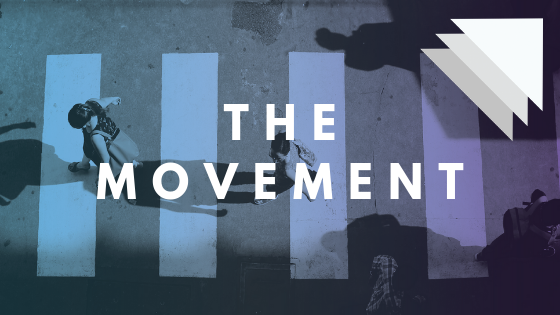
Just about a year ago, TransLoc was acquired by Ford Smart Mobility*. After spending the bulk of my professional career working at TransLoc in a bootstrapped and then VC rocket-fueled spaceship, we were finally in orbit. We are now a part of a large, multinational company that not only has the resources to play a key role in mobility, but also has a compelling vision from the top on what a more human-centered future of mobility looks like.
About the same time as the acquisition, I took on a new role as TransLoc’s National Director of Policy. And while policy is one of those functions that means different things in different organizations, I’m pretty confident I’m taking a hard left turn compared to others involved in policy. Instead of advocating for specific policies–like increasing the gas tax–that would benefit TransLoc’s mission to make public transit the first choice for all, I’m targeting what I actually think is more of a root cause: how to actually implement policies that benefit communities.
My hypothesis is that the specific policy didn’t mean a hill of beans if it can’t get implemented. It’s obviously not this simple, but I’ve felt that the “human” side of policy is easily overlooked in favor of the technical intricacies around statutes. There is certainly a place for the technical, but it seemed like that area was already being plumbed. So I’ve spent the past year asking city, regional, and state leaders in both the public and private spheres from coast to coast one simple question: What do the best leaders do to effect change in their community around transportation and mobility?
As I had these conversations, it became apparent that two complementary elements were necessary to effect change: the external conditions present in the community, and the specific leadership skills of the community’s stakeholders, which are more internally focused.
What do I mean by conditions? Conditions are the external factors present in a community that are necessary for change to come about. They are the rich soil and sunny spot that allows for a plant to bloom. Examples include factors like trust built between public and private stakeholders, a compelling vision for the community, and the presence and inclusion of dedicated advocates to help define and implement that vision.
In contrast to the external conditions necessary, the other element necessary for effecting change is more internally focused around the specific qualities of both public and private leaders in a community. These qualities–like humility, a tolerance for risk-taking, and a focus on the long-term–are found in those individual leaders who are making change happen in their communities. Similar to the patient watering and timely pruning of dead leaves that allow a plant to thrive, these qualities of leaders are necessary for success.
A couple of caveats: First, while these elements are related, their order matters. For instance, even an amazing leader will be less effective in an environment without a strong base of advocates or where existing stakeholders don’t trust each other. With enough time, you may be able to coax a healthy plant in the crack of a sidewalk, but I wouldn’t bet on it. Conversely, a much more likely scenario is when conditions are ripe for change, but specific leaders haven’t yet taken advantage of that situation to effect change.
Second, change is hard and there is not just one answer or framework to the question I posed about what the best leaders are doing to effect change in their communities. Even if there was, I don’t presume to have all of the answers. Asking the question is just the first step in trying to put more focus on the people behind change.
To address both of these caveats, I want to continue the conversations I’ve been having, but invite you to take part in them with me. Launching next week, The Movement is a weekly podcast where I will talk to industry leaders, elected officials, private sector influencers, and relentless advocates who are doing the hard work to make our future green, accessible, and equitable. My goal is to not only profile successful leaders effecting change in their communities today, but to build a diverse coalition of leaders who will make tomorrow real.
I’m not entirely sure how that will happen yet, but I look forward to the process of shining a spotlight on those who are already doing great work and learning together. We will cultivate The Movement with a curious mind, an engaged audience, and high expectations for our future, no manure required.
Want more? Hear from transit leaders across the nation on what they are doing to effect change in their community by downloading our latest white paper today!
*On March 1, 2022, global technology company Modaxo acquired TransLoc from Ford Motor Company. TransLoc is no longer affiliated with Ford or any Ford properties.